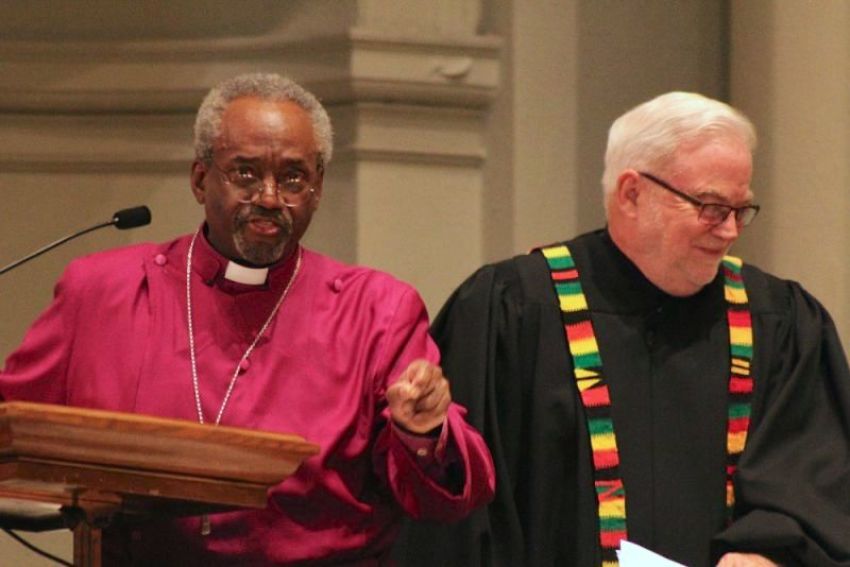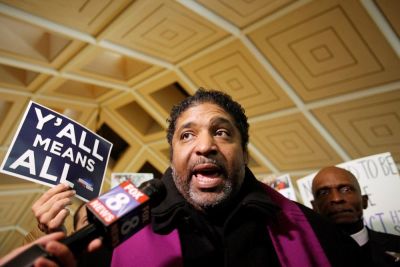Don't Expect a Religious Left 'Great Awakening,' Says Researcher

Recently released research is casting doubt on the prospect of a "Great Awakening" for the Religious Left, noting that even liberal mainline churches don't inspire support for Democrats.
Since the election of Donald Trump, many have speculated that his rise to power will spur the emergence of a Religious Left to protest his agenda items.
Ryan P. Burge, a political science professor at Eastern Illinois University who specializes in religion and politics, noted while there were modern examples of liberal Christian activism, these efforts were not being inspired by regular church attendance.
In an article titled "Searching for the Religious Left" published Thursday by Religion In Public, Burge posed the question of whether regular church attendance for part of the American public indicates a drift toward leftwing ideology.
"It seems that the media forgets that it's possible to be a Christian and a liberal in the United States. I constantly remind people that the dominant (public) theology in this country among Protestant Christians in the early 1900's was the social gospel, which was deeply intertwined with socialism," explained Burge.
"The theory is simple: if exposure to something leads to a change in behavior or opinion, an extreme amount of exposure should lead to a noticeable change."

Burge drew data from the Cooperative Congressional Election Study 2016, looking at the percentage of people who voted for Donald Trump, comparing regular church attendees and less frequent church attendees.
Burge noted that across racial and denominational lines, people who attended church more regularly were more likely to vote for Trump, even among more liberal churches. For the Evangelical Lutheran Church in America, the difference was statistically insignificant. For the United Methodist Church, frequent attenders were more likely to vote for Trump (70.9 percent). Even frequent churchgoers who identified as liberal were more likely to vote for Trump than liberals who didn't attend church often (6 percent of all liberals versus 14.5 percent of liberal frequent church attenders).
"Taken together, these results strike a serious blow to anyone who wants to put a great deal of stock in the 'Great Awakening of the Religious Left.' My first question to anyone who advocates that is a simple one: where is that awakening coming from?" wrote Burge.
"I can find NO instance where the most frequent church attenders were more likely to vote for Hillary Clinton than those who attended at all levels. This is true across racial and educational lines. If an individual wants to be deeply devoted to Christianity in the United States, they are going to have a hard time finding a church that also encourages voting for candidates from the Democratic Party."
Burge's findings casting skepticism on the emergence of a Religious Left from churches was echoed by Daniel Cox, research director with the Public Religion Research Institute in a 2017 column.
Titled "Don't Bet on the Emergence of a 'Religious Left," Cox argued that there were several factors that went against this potential political development.
"The first and perhaps most significant reason for skepticism is that there are far fewer religious liberals today than there were a generation ago," wrote Cox.
"Only 30 percent of liberals report having a great deal or quite a lot of confidence in organized religion. Half say that religion's impact on society is more harmful than helpful."
Cox described the average liberal Christian as "pushing 50" and cited statistics showing that almost half of political liberals under 30 are "religiously unaffiliated."
"Coaxing young progressives to join a movement that would require them to reset their approach to religion is no small undertaking," Cox added.
"Religious progressives are fighting for relevance at a time when secular voters are becoming an increasingly crucial part of the Democratic coalition, and their political clout is only going to grow."



























